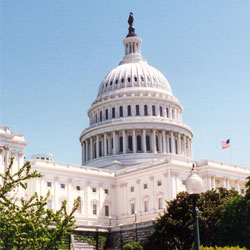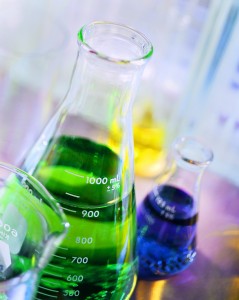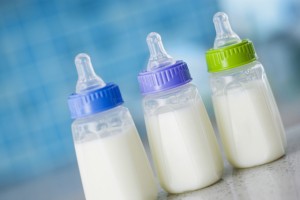Maine's Board of Environmental Protection (BEP) has named bisphenol-A (BPA) and nonylphenols (NPs) as Maine's first Priority Chemicals under the 2008 Kid-Safe Products Law. In addition, they provisionally adopted a phase out of BPA from baby bottles and sippy cups, which will be reviewed by the Maine Legislature before finalization.
Dr. Jeff Peterson, a pediatrician from Yarmouth, was pleased with the Board's action and stated, "No parent would willingly expose their child to dangerous chemicals - chemicals that could affect their ability to grow, learn, be healthy, and bear children. Designating them as Priority Chemicals and collecting more information on which products they are used in is just common sense."
Today's ruling caps a six-month public process in which the BEP heard testimony in support of the proposals from over 400 parents, scientists, doctors, nurses, business owners, public health professionals, and environmental health advocates from across the state and the region.
Testimony included vast scientific data and detailed how the proposed ban could improve the health of Maine children, how it could reduce the health and economic costs that result from exposure to toxic chemicals, and howMaine's many small businesses could benefit by having better information about the products they sell or use.
Steve Taylor, Coordinator of the Alliance for a Clean and Healthy Maine, remarked, "Maine's Kid-Safe Products Law was passed nearly unanimously by the Maine Legislature in 2008 because protecting kids' health, reducing health costs, and giving retail businesses more information is good for everyone. Today's ruling is another step along the careful path ourlawmakers created. Maine scientists have identified two of the worst toxic chemicals and put them on the road to being replaced with safer alternatives. Maine families and small businesses are really the winners today."
As Priority Chemicals, information on the use of BPA and NPs in everyday products, as well as possible safer alternatives, will be compiled. For BPA, information will be collected on infant formula containers, baby food jars, toys, tableware, and child care articles. For NPs, information will be collected on household and commercial cleaners, cosmetics and personal care items, and home maintenance products. This information will give Maine businesses and families an opportunity to learn significantly more about the products they sell and use every day.
Bisphenol-A (BPA) is one of the most pervasive chemicals in modern life. It was synthesized as an estrogen replacement therapy in the 1930's and is now a chemical building block for polycarbonate plastic. It has been widely used in baby bottles, food storage containers, and in the epoxy resins that coat the lining of metal food cans, including some infant formula cans.
According to the U.S. Centers for Disease Control, 93% of Americans have detectable levels of BPA in their bodies. BPA exposure has been linked to a significant number of health problems, including learning disabilities, behavior problems, breast and prostate cancer, reproductive damage, diabetes, and obesity.
Safer alternatives to Priority Chemicals can be required when research shows convincing evidence of harm and the availability of safer and affordable chemicals. Because the scientific evidence against BPA is considered by most to be overwhelming, and safer alternatives are readily available, the BEP has also decided that BPA in baby bottles and sippy cups be replaced.
Nonylphenols are used in detergents, personal care products, paints, and pesticides. Because they are endocrine (hormone) disruptors, exposure to nonylphenols can result in serious health effects, including reproductive damage. Because the dangers are widely recognized and safer alternatives are readily available, many manufacturers, retailers, and cleaning professionals have voluntarily stopped making or using products that contain NP or NPE. But because all efforts to date have been voluntary, NP and NPE can still be found in school, commercial, and industrial settings.
Despite the public outcry, the mounting scientific evidence of harm, and the actions of more and more states, the chemical industry continues to resist efforts to replace BPA with safer alternatives. Steve Taylor added, "Of the 80,000 chemicals in use today, Maine scientists have identified over 1700 as already proven harmful to children. Yet the chemical industry opposes doing anything about just two of the very worst. This flies in the face of common sense and suggests they just don't get it. Parents, consumers, and retail businesses are all demanding safe products. The chemical industry needs to wake up and spend their energy developing safer chemicals instead of defending toxic ones."
If the Maine Legislature affirms the Board's decision to phase out the use of BPA in baby bottle and sippy cups, Maine will become the 9th state to do so, following the action of Massachusetts just this week.





 In 2008, Maine’s Governor John Baldacci signed into law an
In 2008, Maine’s Governor John Baldacci signed into law an 

